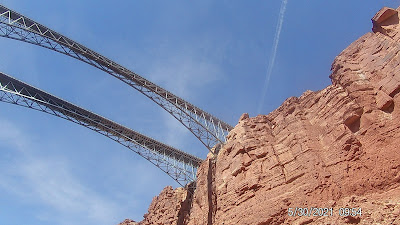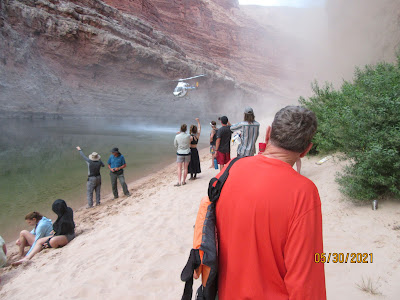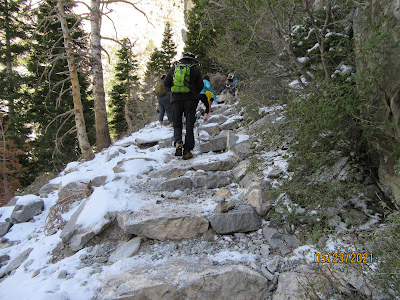Morning call for coffee and juice. For breakfast we had pancakes, bacon and fruit. Last night we decided to sleep without our tent under the beautiful stars. I tried to get a nighttime video of the stars but was unsuccessful.
Our first stop "Red wall Cavern". The below video provides a better glimpse of this huge cavern.
Our dry bags are attached to a nylon line for security. We wear river shoes for entering the raft. These shoes have excellent grip for walking on rubber but when sand is on the bottom of your shoe you must be extra careful when entering or exiting the raft.
Our motorized C-Craft raft design has a lower than usual center of gravity, 64,000 pounds of buoyancy, and a special articulating frame system that holds everything in place, but also allows the boat to absorb the river’s energy.
You see many other rafting vendors during your trip down the canyon. Some of the smaller rafts take 14-days to travel the 226 mile venture.
It's amazing to see how much greenery and animals live and thrive in the Grand Canyon. The Hopi Indians were one of the first to live in the canyon. The 6 tribes generally associated with the Grand Canyon are the Hualapai, Havasupai, Navajo, Hopi, Paiute and Zuni. Each of these tribes have resided on the Colorado Plateau long before the arrival of Europeans and each has their own unique culture and heritage as well as a common connection with the Grand Canyon.
The canyon is specular to see from any direction. That's "Will" our Trip Leader and pilot. He provided great details about the canyon formation and people who led early expeditions of the canyon. He studied Geology in college and was very knowledgeable of rock formations along the Grand Canyon.
Remember I mentioned in Day 1, how shallow the water level is in the canyon. Notice in this video Todd, my personnel Cardiologist, who was also on trip is pointing at a rock that normally you would not see during the trip.




















































